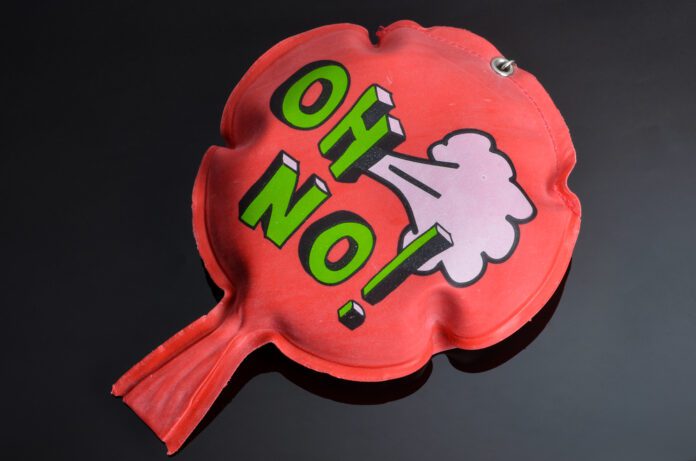Bloating is a condition that occurs when the gastrointestinal (GI) tract is filled with gas or air. Bloating can make the stomach look and feel swollen and uncomfortable. This condition happens to most people 10-20 times a day; however, it is no cause for alarm, as it is usually resolved in a day or two.
What Is Bloating Caused By?
Gas is perhaps one of the most common causes of bloating and can be painful ranging from mild to severe. It can feel like something is trapped in the stomach. The feeling of entrapment usually resolves on its own after a while. Gas can be caused by:
- drinking carbonated drinks
- eating large meals too fast
- smoking
- some cruciferous vegetables such as cauliflower or cabbage
- loose dentures
- chewing gum
- menstruation
- pregnancy
Bloating can also be as a result of an underlying medical condition which includes:
– Food intolerances – bloating is often experienced by people who are lactose intolerant or have a gluten allergy
– Indigestion – this discomfort experienced in the stomach is also called dyspepsia. It can be caused by excessive alcohol drinking, ulcers, liver failure, or cancer
– Infections – stomach infections such as the bacteria Escherichia coli or the virus rotavirus can cause gas. Stomach infections may get worse over time and are usually accompanied by fever and vomiting
– Fluid Retention – fluid retention can result from too much salty food, a change in hormone levels, or can be as a result of diabetes or kidney failure
Other causes of bloating include:
- weight gain
- irritable bowel syndrome (IBS)
- inflammatory bowel’s disease such as Crohn’s disease
- gallstones or gallbladder disease
Excess air is usually removed naturally by the body either through the mouth as a burp or passed through the rectum as flatulence. It can also be treated at home with these nine tips to get rid of gas.
9 Tips To Get Rid of Gas & Help Prevent Bloating
1. Lifestyle changes
Symptoms of gas and bloating can be reduced or prevented by lifestyle changes such as exercising regularly, eating healthy and losing weight. To reduce the amount of air you take in, you should:
- limit your carbonated drink intake, or cut it out altogether
- limit alcohol intake
- avoid the use of a straw when drinking
- chew your food slowly
- avoid gum chewing, as it can make you swallow extra air
- avoid vegetables such as cabbage and broccoli that causes bloating
- avoid salty food, such as french fries
- avoid canned, frozen and fried food
- avoid food containing artificial sweeteners such as sugar-free candy, which contains maltitol and sorbitol
- increase your calcium intake
- eat dinner early
- eat foods containing probiotics which help in repopulating the gut with healthy bacteria. These include kefir and Greek yogurt
- Try giving yourself an abdominal massages as it can also help to reduce bloating
2. Drink water
You are probably wondering why drinking more water would be an option when you already feel like your stomach is bursting at the seams, but drinking more water can actually be productive in getting rid of your gas and also avoid bloat. Several studies have shown that drinking several glasses or more of water a day can help to restore your body’s sodium balance and help your body excrete more fluid, preventing constipation. If you don’t like the taste of water, adding a slice of lemon can help.
Drinking too much water however, especially at mealtimes, can also lead to gas, so moderation is key. Excess water during meals dilutes stomach acid, which is necessary for food digestion; this results in a longer digestion period and eventually, gas and bloating. Drinking a bottle of water before a meal will help to keep your thirst in check during the meal. Water should also be taken instead of carbonated beverages, as these beverages add unnecessary gas to your digestive tract.
3. Relieve Constipation
To reduce constipation and how bloated you feel, certain changes should be made to the food you eat, which when carefully done can keep you full and not result in a bloated belly. These foods mentioned below aid in constipation and also help with other concerns. Try including into your meals:
– Asparagus: the dietary fiber in asparagus contains inulin that helps to prevent bloating
– Ginger: used for thousands of years in the treatment of digestive problems, ginger can be eaten raw, added to smoothies, salads and can also be consumed dried, as ground powder and used as a spice
– Salmon: contains omega-3 fatty acid, which helps to reduce inflammation
– Cucumber & watermelon: these two fruits are not just delicious but also help to reduce water weight
– Leafy greens: greens such as lettuce kale and spinach helps to reduce bloating and also keeps you full for longer
– Brown rice: takes longer to digest, thereby keeping you satisfied
– Avocado: contains healthy monounsaturated fat and keeps you full
– Mangoes, banana & tomatoes: these fruits contain potassium and helps to keep your sodium intake in check
– Water: it is advised to take about 8 glasses of water per day
4. Reduce Food Portion Size
Eating a smaller portion of food will give your digestive tract time to process the food faster and prevent bloating. As a rule of thumb, it is advised to leave one-fourth of your plate empty. Also, dividing your food into two portions and eating it two or three hours apart will leave you feeling fuller and less bloated. Adding a healthy snack to your diet is also advised when trying to get rid of gas. While eating, it is advised to eat in a small mouthful and chew thoughtfully, savoring every bite. If you gulp your food down, there is a chance you take down with you air.
5. Be Cautious About Dairy
Dairy products such as milk, cheese, yogurt, ice cream and butter are a great source of calcium, protein, lactose and other nutrients. However, approximately 68% of the world’s population cannot digest sugar lactose, making the majority of people lactose intolerant. This is because they lack the enzyme lactase, which is needed in order to completely digest the sugar lactose. This undigested sugar is unhelpful when you are trying to get rid of gas. Some people find that they are able to still eat cheese or yogurt because most of the lactose is eliminated during the food processing.
To still make sure you’re getting your daily calcium requirement, people who are lactose-intolerant may try lactose-reduced or lactose-free milk or an over-the-counter lactose medication called Lactaid.
6. Put The Salt Shaker Down
Also known as sodium chloride, salt is a flavor and food preservative used frequently dating back to thousands of years ago. Salt is very important in the daily diet, as its deficiency can result in goiter, a condition caused by the inflammation of the thyroid gland. However, salt is only needed in very small quantities of about 500 mg in our daily meals, but the intake in most people sometimes surpasses 3400 mg per day. Too much salt can result in serious health conditions, such as high blood pressure, heart attack and stroke. Too much salt in the diet can also cause fluid retention, which eventually results in bloating, kidney damage and also affects the bones. Although salt cannot be totally avoided in the diet, regulate your intake by avoiding canned products and fast food. Also, avoiding the temptation of reaching for the salt shaker to sprinkle on your food will help to get rid of gas, fluid retention, and by extension bloating.
7. Physical Activity
Regular physical activity such as walking, running and other exercises can help to get the bowels moving to get rid of gas or stool. Meditation and certain yoga poses can also help to relieve tightness in the stomach. Some of these helpful yoga poses include the happy baby pose, child’s pose and cat-cow pose.
8. Medications And Supplements
If gas pain do not go away after a few days and becomes excruciating or persistent and impact your day-to-day functionality, your physician might recommend a more suitable medication such as over the counter medications such as:
– Simethicone – this anti-foaming agent helps to reduce gas pressure, bloating and discomfort. Relief is expected minutes after use. A product containing simethicone is Gas-X and is available in soft gels and chewable
– Beano – a supplement which contains the active enzyme alpha-galactosidase which helps in digesting complex carbohydrates such as beans and vegetables. Beano can be used by vegetarians and is also gluten-free
– Lactaid – for people who are lactose intolerant, taking a Lactaid capsule before a dairy meal aids the stomach to effectively break down lactose with the help of the digestive enzyme lactase
– Imodium – this combination of simethicone and loperamide hydrochloride to provide relief and can be used by children and adults
– Pepto-Bismol – contains the active ingredient bismuth sub salicylate, which helps to stop diarrhea, relieves indigestion and relieves heartburn. Pepto-Bismol is available in both capsules and liquid
– Alka-Seltzer – this product provides a chewable gum option that contains calcium- carbonate which helps with indigestion and provides heartburn relief. The chewable comes in all flavors and can be taken by children and adults
– Activated Charcoal – this is a widely used supplement that helps to alleviate gas and discomfort. It is especially used during an emergency to treat drug overdose and helps to relieve GI discomfort
9. Essential Oils
These oils are extracted by distillation from plants, fruits and flowers to become essential oils. Essential oils have been used for thousands of years in the treatment of various health conditions. The oils can also be used in relieving gas. Essential oils should never be used alone and should always be diluted with carrier oils such as jojoba oil, olive oil or coconut oil unless it is purchased as supplements and designed for oral use. Essential oils can also be used as aromatherapy to relieve stress. Some essential oils that can be used to relieve gas include
Several studies have shown that peppermint oil helps to reduce menstrual cramping, pain and also relieve gas. Peppermint contains L-menthol that helps to block the calcium channels in smooth muscle. It is also helpful in reducing the symptoms of irritable bowel syndrome (IBS) and helps to provide soothing relief for the intestines. This essential oil also supports the immune system and prevents inflammation. 1-2 drops can be added to a cup of water before meals
– Chamomile Oil
This very versatile oil is also known as “herbal aspirin.” It can be used topically to relieve gas and it is very effective due to its anti-inflammatory properties and antispasmodic effects as it helps the muscles of the intestine relax for easy passage of food. 2-4 drops of chamomile essential oil can be gently massaged into your tummy topically to provide relief
– Fennel Oil
Fennel oil is widely recommended for constipation and is also delicious to eat. It has antibacterial, antifungal properties, improves digestion, helps to treat colic and chronic colitis
– Lemongrass Oil
Lemongrass is widely used in aromatherapy because of its suiting fragrant smell. This oil is used in Brazil as a gastro-protector and to treat disturbances by protecting the intestine from conditions such as inflammation and ulcers
– Cardamom Oil
Cardamom oil has strong antibacterial properties that help to protect the digestive tract. Cardamom oil can be used if you suspect your bloating is a result of bad bacteria overgrowth. Cardamom oil can be diluted in water and taken orally, used topically, or inhaled in a diffuser
– Ginger Oil
Ginger anti-inflammatory property is unrivaled and can be taken as a tea spice that can help soothe an upset stomach. Ginger can also help to increase the emptying of the bowels. Drops of ginger oil can be added to water and drunk, or added to bathing water
Bloating is the uncomfortable accumulation of gas and air in the digestive tract. Usually short-lived, bloating can be very uncomfortable and frustrating. To get rid of gas, it is important to know the cause and take the necessary step in relieving gas. Some causes of bloating include eating salty food, taking carbonated beverages, hormones, eating too much and too fast, drinking too much water. A change in the above listed will result in positively preventing and relieving relieving gas and also provide more health benefits.
References:








